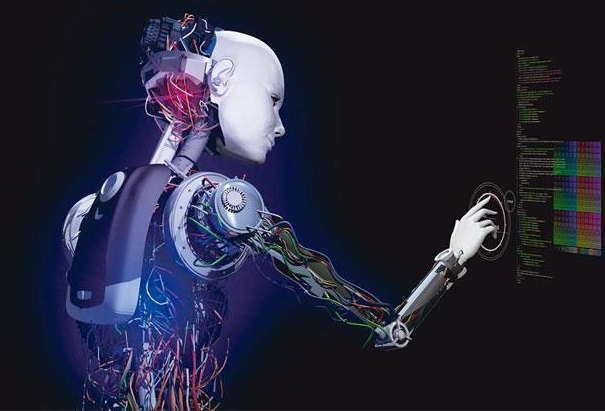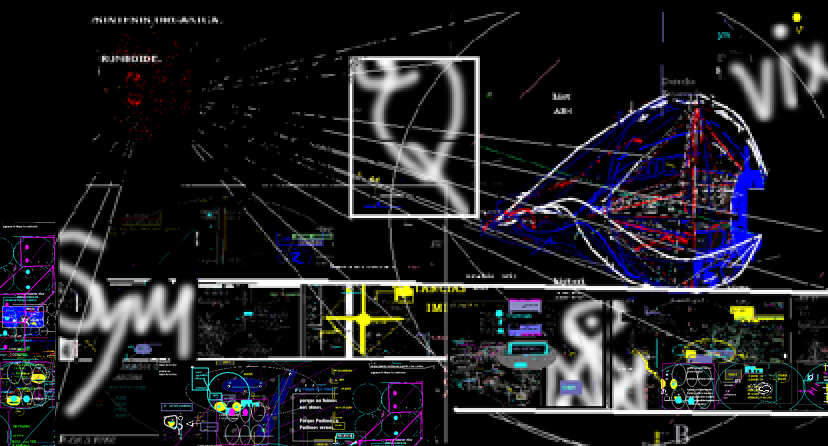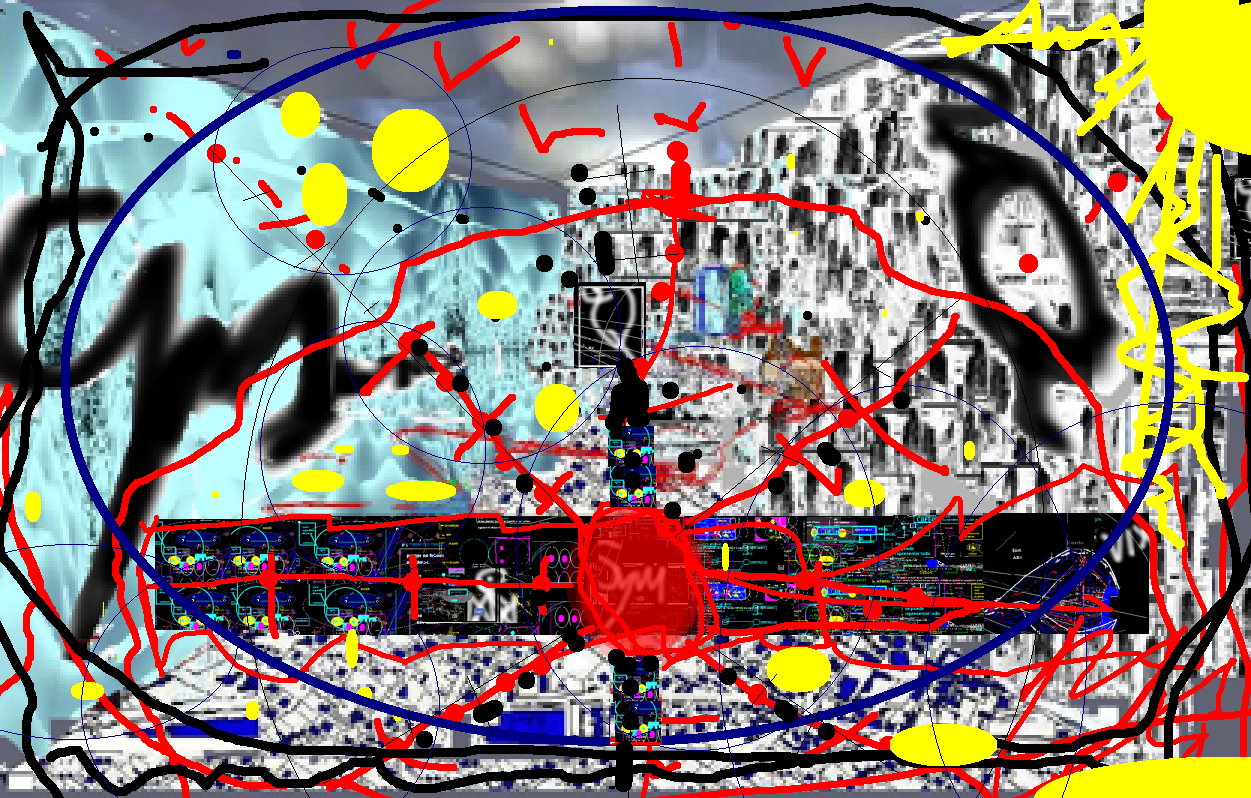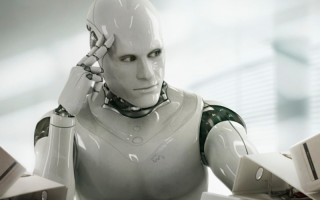USA - Africa: Artificial Intelligence Rising
For Bloggers
A challenge to manage USA - Africa in AI Business?
Seriously, TECH advances are being impressive despite they are forgotting the common sense about basic relations of things, the basic and fundamental structure of the things to order the Web in the rigth way.
The internet of things, need the previous structure of the things. (Critaxis)
The AI needs a computer language based in Geometric Logic (Logometry)
Contact us here mayado@sylodium.com if you want to Make money with us being our blogger in this niche.
For companies
Make business in all bilateral trades (Nigeria – New York, Ethiopia – Miami, Chicago, California – COMESA…) about Artificial Intelligence
For Institutions
Tap Sylodium for synergies to conquer USA - Africa future trade relations in Internet
You, sooner than later will have to count with us.
This new is from AfricanIndy.com
Out of Africa: home-grown Artificial Intelligence Rising
The New York Stock Exchange-listed firm Rockwell Automation is the world’s largest provider of industrial automation products.
Rockwell employs more than 22 000 people and has customers in more than 80 countries worldwide. However, the Wisconsin-based company, which peddles both the Allen-Bradley and Rockwell Software brands, among others, maintains a fairly low profile outside its area of speciality and has a relatively modest footprint in sub-Saharan Africa.

To accelerate growth across the continent, Rockwell acquired Hiprom in 2011. Hiprom, a Johannesburg-based corporation, is a process control and automation systems integrator specialising in mining and mineral processing.
When Rockwell acquired Hiprom, a company spokesperson revealed that the acquisition was a strategic play to strengthen their global project management and delivery capabilities in the mining, metals and minerals industries.
According to John Lewis, Rockwell’s current director of business partnering, Hiprom - which is still run out of South Africa - is now the group's global mining competency centre of excellence.
In a recent podcast conversation I had with Lewis, he shared how Rockwell is adapting to changing times by hiring software developers and tech-savvy business specialists who can speak to the myriad optimisation challenges faced by their clients all over the world.
When asked what percentage of Rockwell’s output - in terms of the solutions they deliver to clients - is hardware versus consulting services and software, Lewis stated that the ratio is roughly 70% hardware, 20% engineering services and 10% software.
He hastened to add that the mix is changing rapidly - moving away from hardware and growing towards solutions and software, owing to the broad global trend towards digital transformation.
When Lewis first joined Rockwell in 1979 - when the company was almost 100 percent a hardware business - their service proposition to factory owners was: “Buy our stuff, and we’ll come out and replace anything that breaks.” Over time that concept grew to include: “Enlist us to help you engineer solutions.”
Lewis admitstheir clients had a hard time adjusting to being charged for consulting services, but apparently soon realised the benefits of having a competent technical partner on call to keep machine downtime to a minimum.
As computing played a more significant role in how leading industrialists hacked operational efficiency issues, software development and deployment became more and more important.

Today, Rockwell is expeditiously researching and testing various software applications and service delivery models which often involve the deployment of artificial intelligence (AI), machine learning and the Internet of Things (IoT).
When asked how he responds to pro-labour critics who assert that companies like Rockwell are undermining livelihoods by helping industrialists harness automation to completely eliminate the need for human participation in factory processes, Lewis stated that he was yet to encounter a “lights out, no humans involved” industrial operation.
He reckoned that it is largely unsafe and onerous tasks, as well as repetitive jobs which are difficult for humans to do consistently, that are being automated.

He insisted that while all such work is being taken over by machines, many other jobs are being created requiring different and more unique skills.
He did, however, admit that such jobs are not necessarily created at a rate of one for one, referencing the growing need for individuals possessing higher tech competencies to install, programme and maintain cutting-edge industrial equipment, as well as write and integrate software.
Babusi Nyoni is a Zimbabwean senior user experience (UX) designer at Thomson Reuters who is based in Cape Town, South Africa.
Nyoni happens to be low-key one of the continent’s leading AI and machine learning practitioners.
In October 2016, he gave a TEDx talk on how predictive modelling and historic data could be used to anticipate Africa’s next refugee crisis.
Shortly afterwards, the United Nations Refugee Agency (UNHCR) in Geneva reached out to rope him in as a consultant.
Since then, he has helped the UNHCR build a prototype that uses conflict and food security data to predict the magnitude of displacement in one of the world’s war-torn nations.
A production version of the tool is already in the works, and once it is ready, the UNCHR plans to make it fully accessible for use by governments, civic organisations, corporations, and individuals looking to pre-empt impending humanitarian crises.
I have come to value Nyoni’s views on how advances in robotics and automated software are likely to change everyday life, not least, because we share a fairly idealistic world-view.
During a recent interview, Nyoni told me that despite spending a great deal of time working on retail AI applications, he is most excited about the future of AI in biotech.
He cited how the beginning 2017 saw the approval of the first US Food and Drug Administration-approved application of machine learning and deep learning for diagnosing heart conditions. (Yes, there is a difference between machine learning and deep learning, but I will not be diving into that.)

Not only is Nyoni excited by innovations such as the current use of AI-led computer vision to help visually impaired people perceive the world around them, but he is especially enlivened by the prospect of fast-learning software being deployed in ailing bodies.
As the likes of Rockwell continue to promote the trend towards mechanised automation across the world's leading industries, the potential use cases for IoT will undoubtedly multiply.
As that happens, we should expect a spike in the demand for AI and machine-learning applications that will be used to make sense of the vast amounts of data that connected devices collect.
Ultimately, our ability need to perform accurate big data analysis needs to keep up with advances if mankind is to benefit from IoT deployment.
Nyoni reckons that if we fail at this, the consequences could be cataclysmic - picture hundreds of thousands of pacemakers malfunctioning, factories melting down and 100-car pileups.
What Nyoni and I most decidedly do not have in common is his Elon Musk-esque view that humanity is speedily edging towards a “singularity with the machine”.
He would point to the way social media footprints are becoming an extension of people's existence as opposed to an alternate plane, as might have been the case initially.

Nyoni believes that because many of us have outsourced decision-making power to AIs such as Google to inform how we navigate our daily lives, ie interact with fellow humans, relate to our physical environment, and plan for the future, we might be opening ourselves up to catastrophic events should the AIs we’ve allowed to “run our lives” be compromised.
On one hand, I totally discard the very notion of singularity. On the other, I take John Lewis’s assertion that industrial automation won't compromise livelihoods with a massive pinch of salt - particularly within the context of the developing world.
The livelihoods debate aside, I do think that there are far more complex issues we would all do well to stay awake to as business interests look to embrace robotics and exploit software automation.
I believe that as cutting-edge automation technologies converge, the perfect storm is imminent.
And before it hits, we ought to decide what kind of human beings we want to be.
Shall we passively allow new age industrialists free reign to pursue any profit-driven automation projects they wish? Or should we lobby for the complete democratisation of historic data currently held by proprietary entities and insist that any innovations launched in the automation space be judged on the basis of tangible public benefits?

